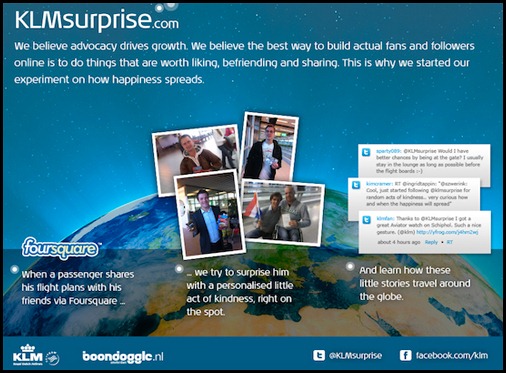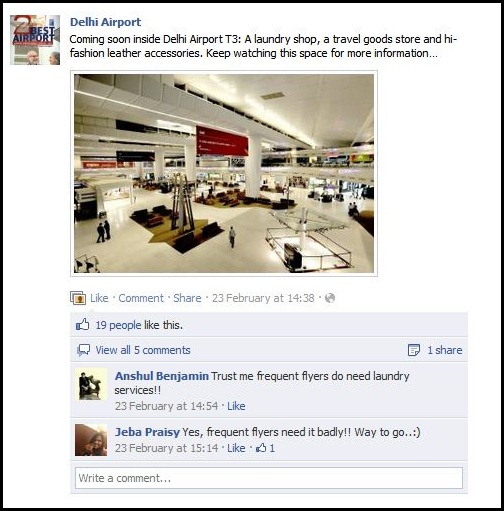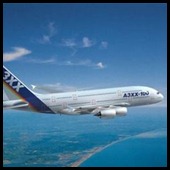 Aviation industry has always looked at doing things in their marketing plan that can match the service quality that they offer in their flights. With increasing cost of advertising and marketing, innovating in these areas would only add to the ever increasing cost of the industry. Social Media, hence, has emerged as a very feasible platform for the industry.
Aviation industry has always looked at doing things in their marketing plan that can match the service quality that they offer in their flights. With increasing cost of advertising and marketing, innovating in these areas would only add to the ever increasing cost of the industry. Social Media, hence, has emerged as a very feasible platform for the industry.
Getting your routes right
Social Media engagement has allowed airlines to create awareness about their flight route. Effective planning has not only made the brand come out with better recall but also enabled an increased awareness of its network.
Cathay Pacific used Facebook to build awareness about its network with an interesting yet simple ‘Around the World in 80 Days’ contest. Participants were invited to create their flight pattern across the world in 80 days using the airlines network and one lucky winner was rewarded with their plan. The contest not only generated a lot of buzz about the airlines but also helped in increasing the airlines recall value in previously unknown sectors.
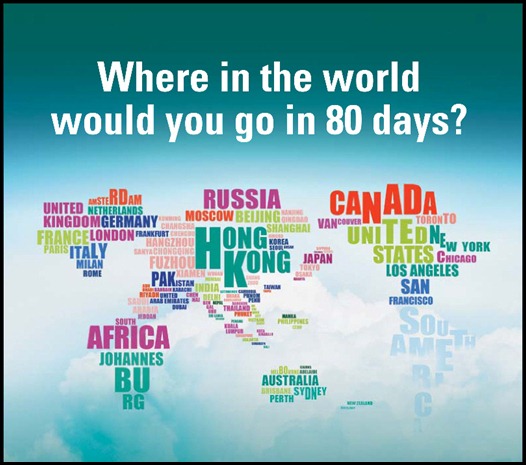
Cathay Pacific ‘Around the World in 80 Days’ Contest
Friendly Flier
The idea of getting onto social media is to reach out to as many probable customers as possible and what better way to do that by crowd sourcing your customers. Cebu Pacific invited people on its page to fill an entire aircraft with friends and the ones who filled the aircraft in the shortest possible time were given a free flight to a chosen destination.
The campaign saw an exponential increase in the number of participants. And a sharp hike in the brand likeability quotient. What it also did in the process was give the airlines a lot of probable customers which was at the core of any campaign.
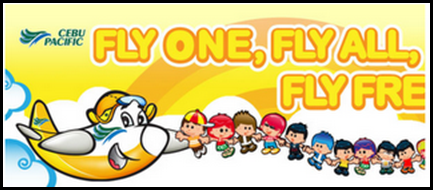
Cebu Pacific ‘Fly One, Fly All, Fly Free’ Campaign
Lift off before take off
KLM airlines realized that a flight experience starts way before the passenger boards the aircraft. The journey begins the moment the flier reaches the airport. The Dutch airline’s ‘Surprise campaign’ aimed at delighting passengers in a most unconventional way. Customers checking into the airport through either Foursquare or twitter were handed over surprise gifts ranging from champagne, city guides, travel related gifts etc. The ‘happiness album’ was later uploaded on Facebook for their friends to see.
The result of this camapign was phenominal. By reaching out to just 28 passengers in 3 weeks, over a million social media impressions were generated! The campaign was rated amongst one of the best social media campaigns of the year. It also propelled the image of airlines sky high.
In flight entertainment
While a lot of airlines decide to go the extra mile with their in-flight entertainment, few would have thought of the route taken by Finnair. On board their flight from Helsinki to New Delhi on 26th January 2012, the flight attendants broke into an impromptu dance on a hindi song, dressed in indian costume and matching every step from a bollywood movie. A video was shot soon after take off was duly uploaded in no time on various social media platforms.
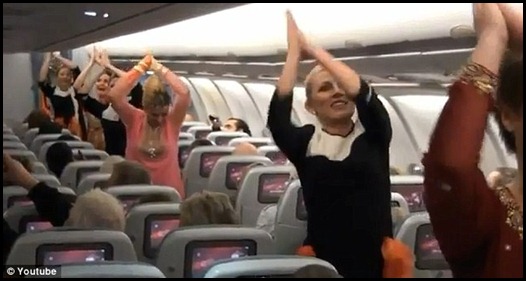
Celebrating Indian Republic Day on board Finnair
The result was an astonishing 4.4 million hits in less than a month. Now, that’s some mileage the airlines attained with the least possible investment. It also endeared the brands to many Indians traveling to Europe.
Ground Control
Lots of airports have also jumped onto the social media bandwagon. They realize the opportunity to interact with the fliers and getting crowd sourced information about the maintenance of the terminal was never so easy.
It also gave the terminals an opportunity to become a friendlier place than the earlier notion of a cold garish cube structure where people only came in to go out as quickly as possible. With the terminals changing in the way they operate, the platform provides these establishments a way to inform the travelers about all the possible luxuries and opportunities that await them while they are in the terminal.
Touch Down
With the aviation sector looking in every possible direction to cut cost, social media provides them with a tool that can help them reach out to a lot more customers at much lower cost. It also provides them with the opportunity to extend the brand association from just a few hours of flying to a much longer duration, thus, enhancing the brand recall.

